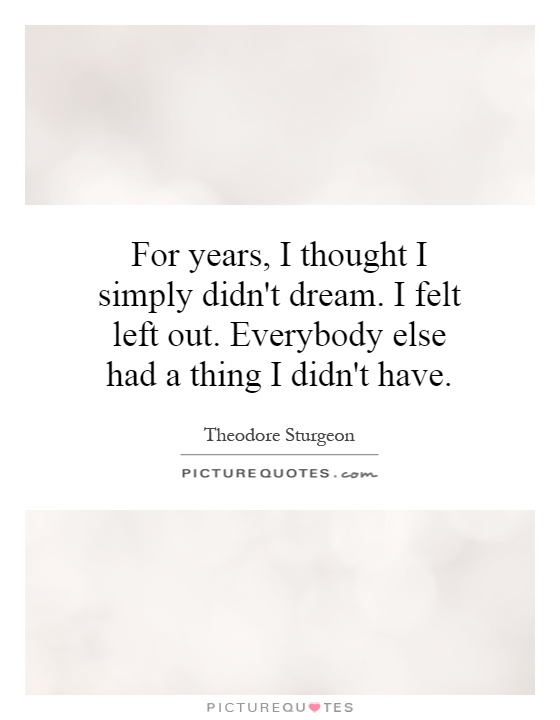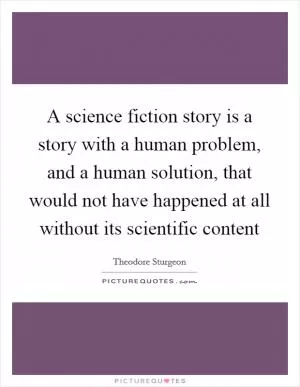For years, I thought I simply didn't dream. I felt left out. Everybody else had a thing I didn't have

For years, I thought I simply didn't dream. I felt left out. Everybody else had a thing I didn't have
Theodore Sturgeon, a renowned science fiction writer, once said, “For years, I thought I simply didn't dream. I felt left out. Everybody else had a thing I didn't have.” This quote resonates with many individuals who have experienced a lack of dreams or vivid dream recall. Sturgeon's words capture the feeling of isolation and longing that can come from feeling disconnected from the dream world.Dreams are a mysterious and fascinating aspect of human consciousness. They can provide insight into our subconscious thoughts, fears, and desires. For some people, dreaming is a regular and vivid experience, while for others, dreams may be fleeting or nonexistent. Sturgeon's admission that he thought he didn't dream for years highlights the sense of missing out on a fundamental human experience.
Sturgeon's statement also speaks to the idea of feeling different or separate from others. In a society where dreams are often discussed and analyzed, not being able to recall or experience dreams can make a person feel like an outsider. It can create a sense of disconnect from the shared human experience of dreaming.
However, Sturgeon's words also suggest a sense of self-awareness and introspection. By acknowledging his lack of dreams, he was able to confront his feelings of inadequacy and explore the reasons behind his perceived deficiency. This introspection is a hallmark of Sturgeon's writing, as he often delved into complex psychological and philosophical themes in his work.
Ultimately, Sturgeon's quote serves as a reminder that our individual experiences, even those as seemingly universal as dreaming, can shape our sense of self and our place in the world. By acknowledging and exploring our differences, we can gain a deeper understanding of ourselves and our connection to others.












 Friendship Quotes
Friendship Quotes Love Quotes
Love Quotes Life Quotes
Life Quotes Funny Quotes
Funny Quotes Motivational Quotes
Motivational Quotes Inspirational Quotes
Inspirational Quotes